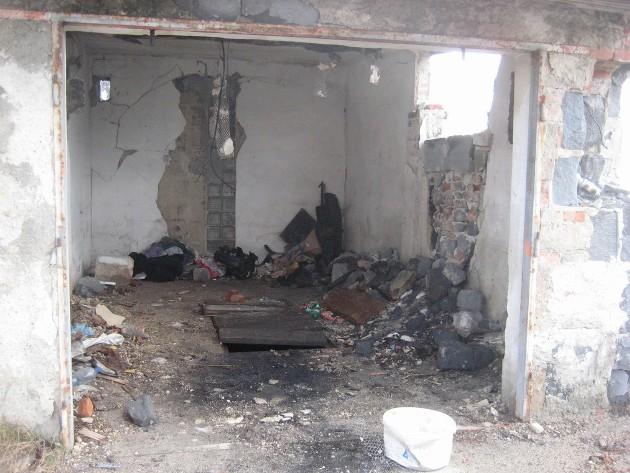The photographs that follow are from Ostrava today. Near the main train station a memorial to Holocaust victims was erected a while back. Its dominant feature, a Star of David, is comprised of several separate elements, as you can see below.
The present-day situation for Romani people in Ostrava is just as bad as it is, for example, in Ústí nad Labem and other localities. It seems that the city (and some municipal departments) are doing everything they can to push Romani people out, irregardless of how they push them out and where the people end up. We will be reporting in more detail on the fates of several Romani families during the course of the coming week.
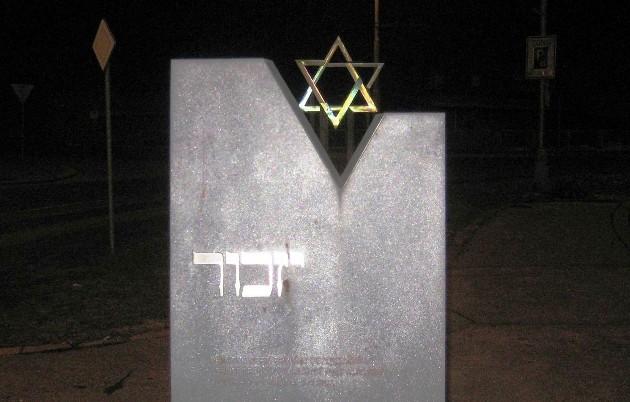 g
g
Photo: František Kostlán.
The memorial at the main train station in Ostrava. The Star of David is clear only when viewed head-on, because it is comprised, as can be seen here, from various separate elements.
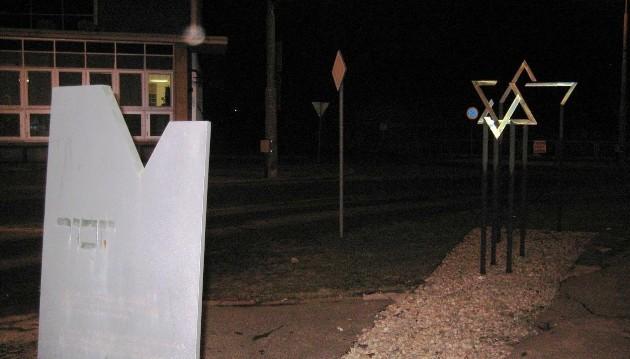
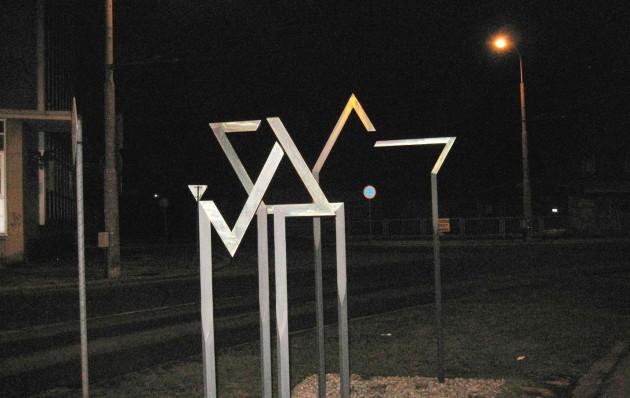
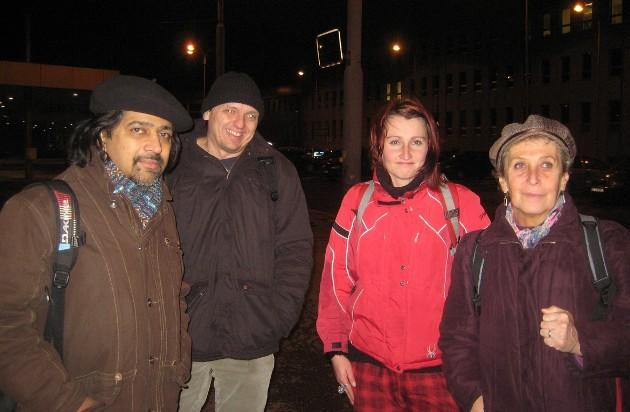
Our journey to the heart of Ostrava begins. From the left: Kumar Vishwanathan, chair of the Life Together (Vzájemné soužití) association, Ondřej Marek of the Ostrava branch of ProAlt, Martina Hrdličková, and Věra Roubalová Kostlánová.
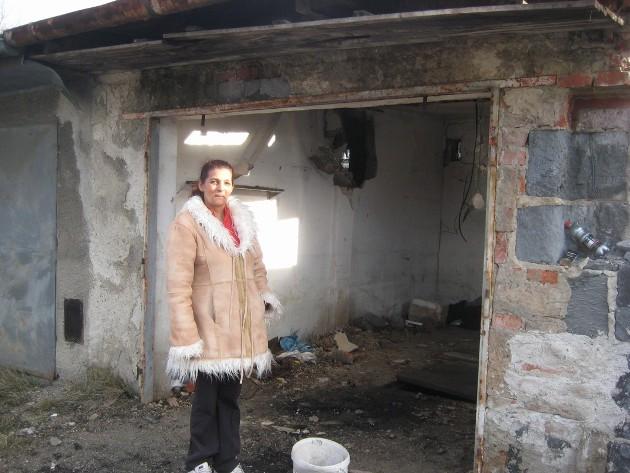
Because she has been unable to find any other proper housing, Ms Eva is determined to move, along with seven other members of her family, into two garages, each about nine meters square, where they will have to repair the roof and install heating. There is no electricity, no toilet, and no water there.
Ms Eva previously lived in an apartment building and had an open-ended lease, but moved out after she received threats that her children would be killed if the family stayed there. Yet another private landlord recently gave the family notice after that. Neither the city nor the state are interested in her case.
The former garages are part of a homeless colony near one of the bridges in Ostrava. I consider it symbolic that these people are literally "ending up under a bridge."
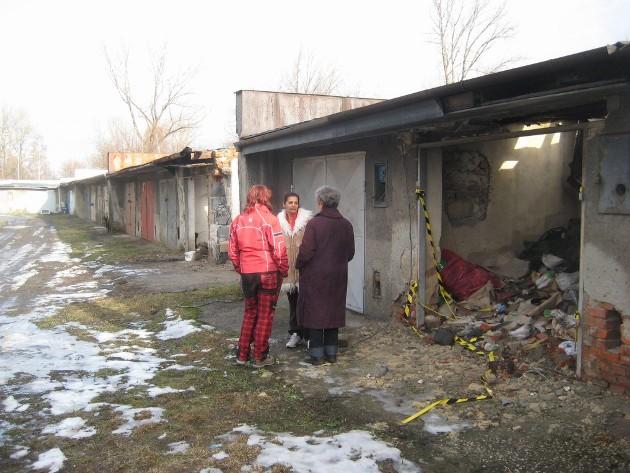
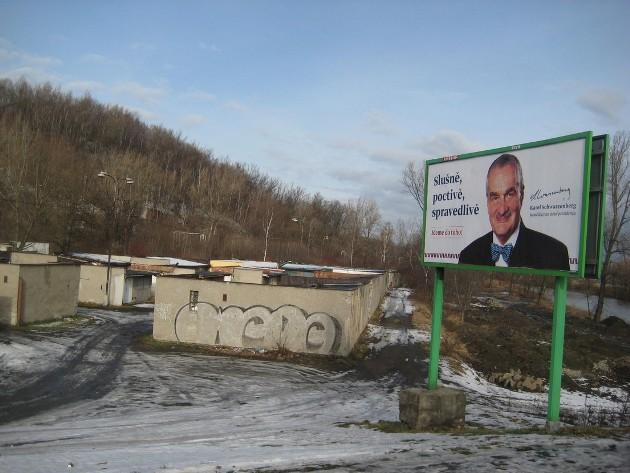
An election billboard in the immediate vicinity of the homeless colony in the abandoned garages. The slogan reads "Decently, honestly, fairly".
When I asked Ms Eva what she thought of former presidential candidate Karel Schwarzenberg’s campaign ad, she responded as follows: "I consider that slogan to be the height of cynicism. That person is in the government, right? He is therefore co-responsible for what is being done with us here."
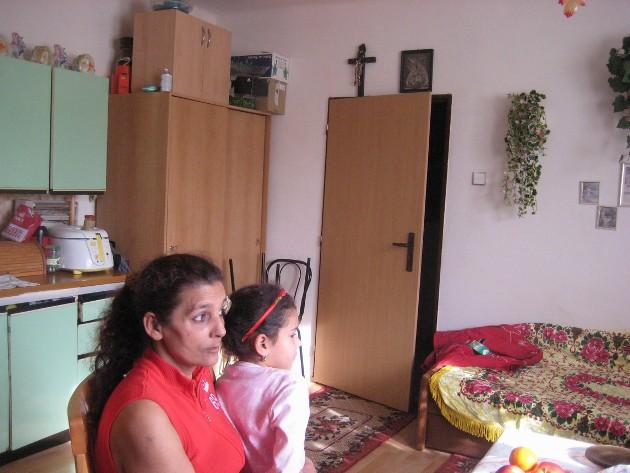
Ms Eva with her granddaughter in the apartment she must vacate by the end of March. Members of the family attend church rather often.
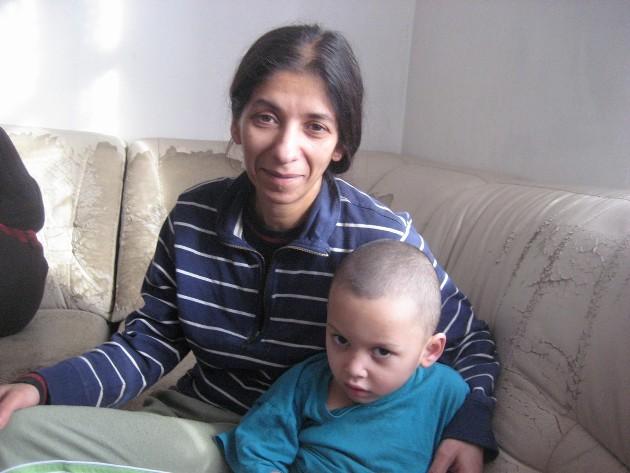
Ms Iveta had to leave her previous housing on Přednádraží street in Ostrava. She and her children moved into a residential hotel, where they all contracted dysentery. Despite this, she has (at least for now) ended up in a better situation than other people from the Přednádraží eviction have: She is living in a social apartment managed by the Společně – Jekhetane ("Together") association. The property has been leased from the city for half a year, which means the lease will expire soon.
For now Ms Iveta has been relieved of her worse existential concerns. When she was living in the residential hotel, she had to pay CZK 17 000 [EUR 660] per month in rent, which meant she sometimes could not afford to feed her family. She has nine children, some of whom are already adults. She is currently taking care of seven of them plus her grandson (pictured above). Her husband died in a car crash several years ago.
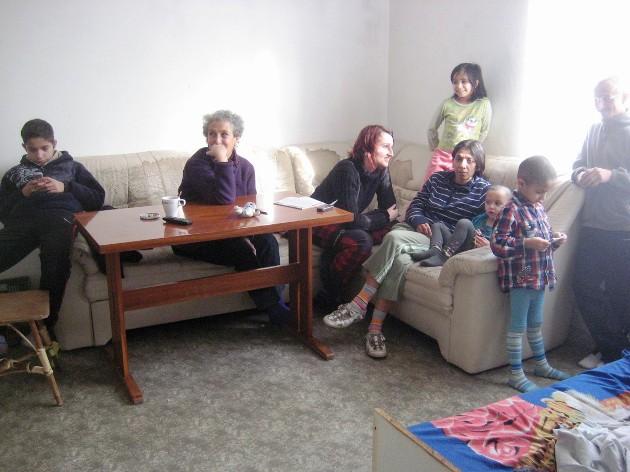
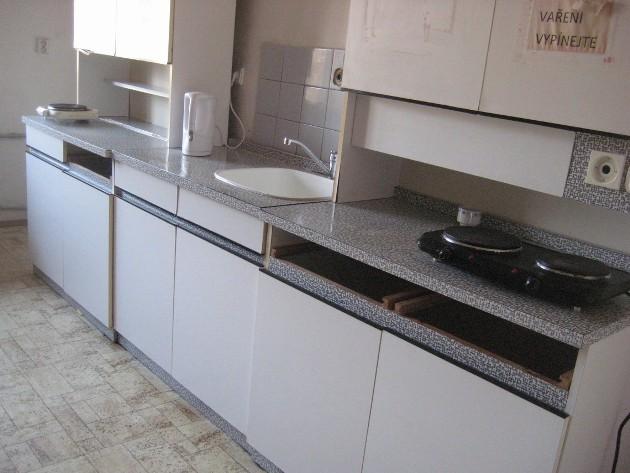
This is the residential hotel on Cihelná street. Dysentery has been spreading here for some time. Why? Several dozen people occupy one floor of the building. The rooms are an average of 20 square meters, and up to five people live in each one. The facilities available to the people living on that floor are as follows: Three sinks, three showers, four toilets, and a small kitchen with two hotplates, one with two burners, the other with one burner.
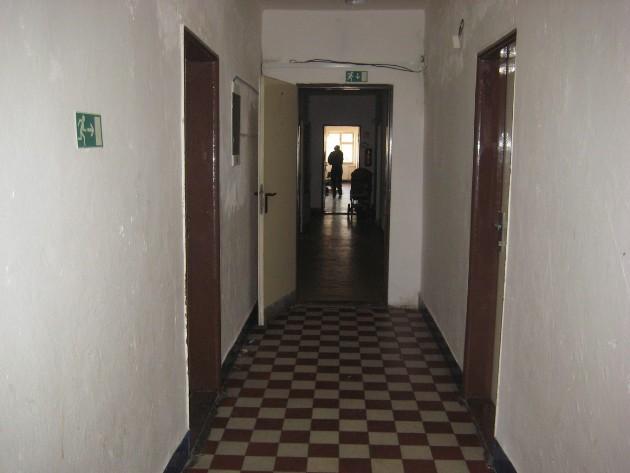
The tenants take care of cleaning the hallway.
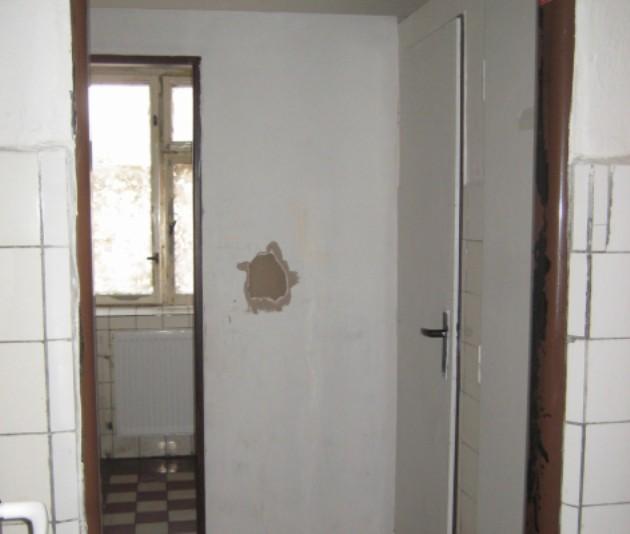
The common restroom.
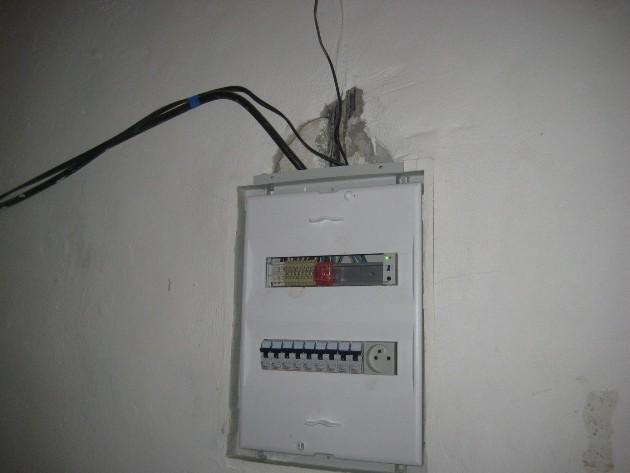
The appearance of this electricity distributor indicates what kind of care the owner gives the residential hotel.
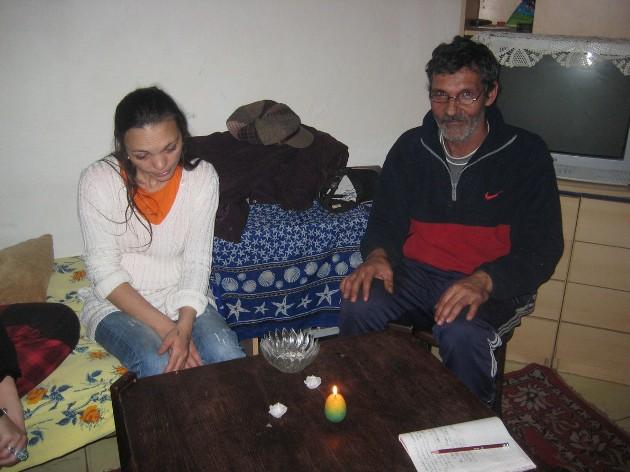
Things are pleasant with good people, even when all you have is candlelight, and Ms Helena and her husband Miloslav are great. We are back on Přednádraží street, where the only building still occupied is no. 8. Only seven families are left here, six Romani families and one "white" one. The ČEZ power utility has shut the electricity off. There is only one cold-water tap open for the whole building, down by the front door. The tap had to be replaced recently because it froze shut.
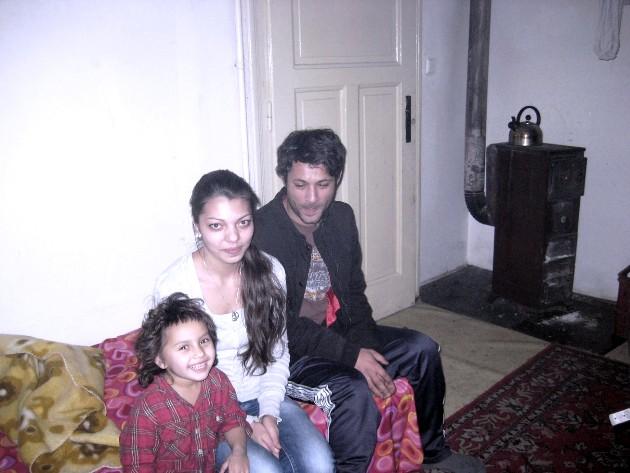
Ms Helena’s daughter Petra.
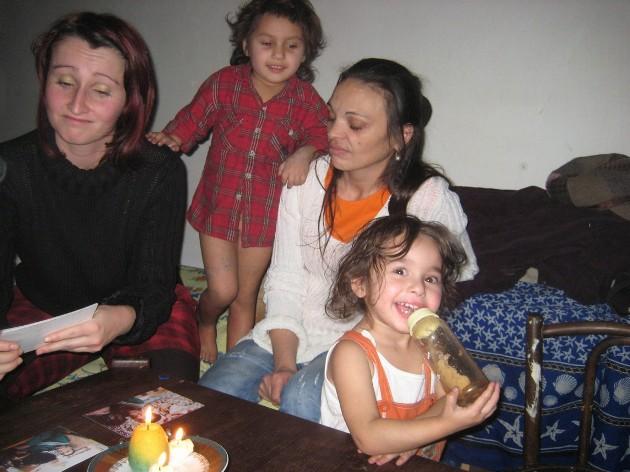
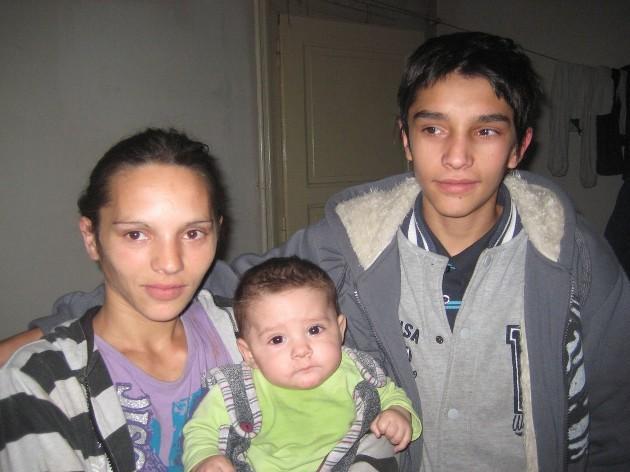
Ms Helena’s sister Marie, who is still living on Přednádraží street with her husband and their six children.
